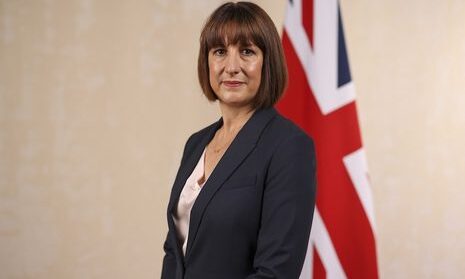Chancellor resists calls for business relief in Spring Statement
UK businesses had been hopeful the chancellor would raise the relief rate for retail, hospitality, and leisure after cutting it to 40% in the October budget

Chancellor Rachel Reeves has resisted calls from businesses for relief ahead of the upcoming tax changes this April, as part of her Spring Statement today (26 March).
UK businesses had been hopeful the chancellor would raise the relief rate for retail, hospitality, and leisure after cutting it to 40% in the October budget, where increases in the national living wage and employer NI contributions were also announced.
From 1 April, employers’ NI contributions are set to rise by 1.2%, from 13.8% to 15%, while the threshold at which businesses start paying National Insurance on a worker’s earnings will be lowered from £9,100 to £5,000.
National Living Wage is also set to rise by 6.7% to £12.21 an hour up from the current pay of £11.44 raising costs for many businesses across the country.
The statement from the chancellor today also made no mention of any increases to taxes like income tax, corporation tax or capital gains tax. However, she claimed that a crackdown on tax evasion via new investment into HMRC would raise a further £1bn.
Reeves confirmed plans to increase the number of those charged with tax fraud by 20% every year, which will increase the total revenue raised from cracking down on tax evasion to £7.5bn.
The chancellor also announced adjustments to the previously announced welfare reform package, after the Office for Budget Responsibility (OBR) claimed the value of these cuts is £3.4bn, £1.6bn lower than the previously thought £5bn.
These reforms include stricter tests for personal independence payments (PIP) and a freeze on incapacity benefits.
Following “further adjustments” to the reform package, Reeves announced the OBR has now said cuts to welfare will save £4.8bn.
The Universal Credit standard allowance will increase from £92 per week in 2025-26 to £106 per week by 2029-30, while the Universal Credit Health element will be cut to the new claimants by 50% and then frozen for new claimants.
In addition, £1bn will be invested into personalised employment support to “provide guaranteed, personalised employment support to help people back into work”.
The measures come as the OBR revised down the UK’s growth forecast for 2025 from 2% in the autumn to 1%. Alongside this, it is forecasting that inflation will average 3.2% this year, before falling to 2.1% in 2026 and meeting the 2% target from 2027 onwards.
The chancellor also revealed plans to bring down the cost of running government by making it “leaner and more agile” and added that it will be looking to reduce the costs by 15% or £2bn by the end of the decade.
Reeves announced that the government will increase capital spending by an average of £2bn in a bid to “drive economic growth and deliver its commitments on defence”.
In addition, the government will provide an additional £2.2bn in spending for the Ministry of Defence next year, rising to 2.5% of GDP by 2027. This is due to the need to act quickly in a “changing world”, according to the chancellor, who added that this investment is “how we make our country a defence industrial superpower”.
The measures come as the chancellor was insistent that she would stick to her fiscal rules of balancing the budget by 2029/30 and net financial debt will fall by the end of the forecast period to 2029/30.
As such, she said that the measures taken today will install fiscal headroom adding this means moving from a deficit of £36.1bn in 2025-26 to a surplus of £9.9bn by 2029-30.

